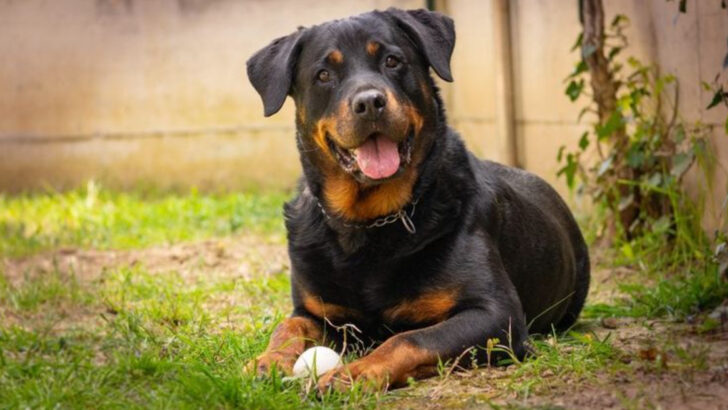Not every dog is a soothing soul—and some can seriously stress you out.
While dogs are often seen as comfort creatures, emotional support on four legs, not all breeds are built to bring calm. Some are loud. Some are clingy. Some never, ever stop moving.
If you’re dealing with anxiety, the last thing you need is a pup that barks at shadows, shreds your furniture out of boredom, or panics every time you leave the room.
These dogs are incredible in their own ways—just maybe not the best match for an anxious heart.
Too much energy, too much drama, or too much everything can make daily life feel more overwhelming than peaceful.
Here are 17 dog breeds that might be lovable, loyal, and downright adorable.
Dalmatian

Dalmatians are known for their striking black and white spotted coats, but these beautiful dogs are not just pretty faces. They are full of energy, requiring plenty of exercise to keep them happy and healthy.
For someone dealing with anxiety, the constant need to keep up with a Dalmatian’s high activity level might be overwhelming. These dogs are also quite intelligent and can become bored easily, leading to destructive behavior if not properly stimulated.
If you’re unable to provide the time and space a Dalmatian needs, this breed might not be the right match for you.
Border Collie
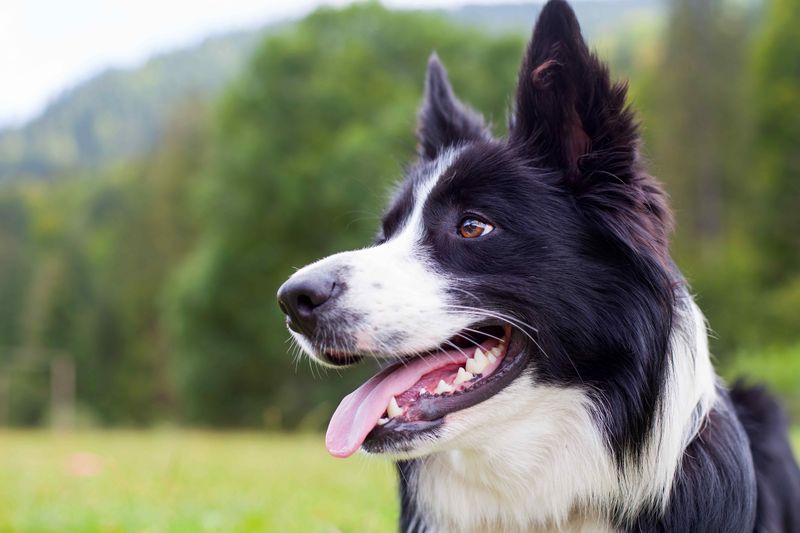
With a reputation as one of the most intelligent dog breeds, the Border Collie is a master of herding and agility. Their ability to learn quickly and intense focus can be both a blessing and a curse for an owner with anxiety.
These dogs thrive on mental and physical challenges, requiring a lot of training and engagement. If they don’t receive enough stimulation, they can become restless and frustrated.
For someone seeking a low-maintenance pet, a Border Collie’s demanding needs might add undue stress rather than relief.
Siberian Husky
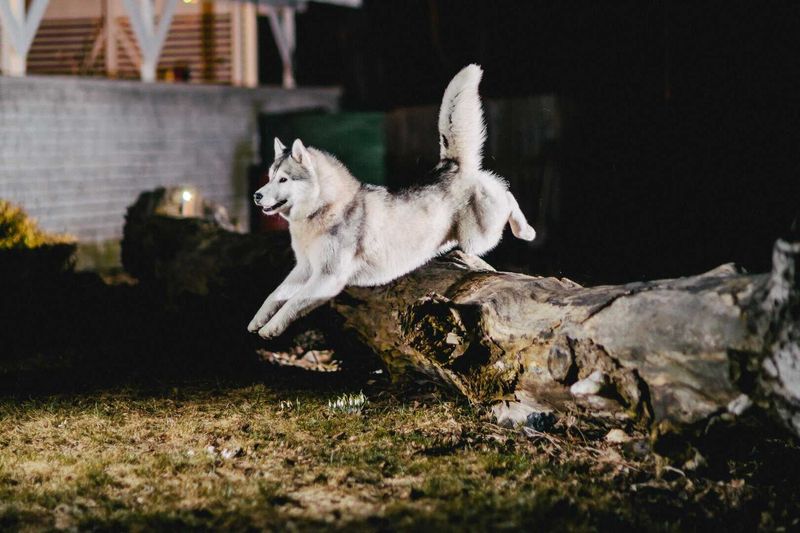
Siberian Huskies are known for their wolf-like appearance and boundless energy. Originally bred as sled dogs, they have a strong instinct to run and explore.
Their adventurous spirit can be challenging for an owner who struggles to keep up with such an active lifestyle. Huskies are also known to be escape artists, which means they require a secure environment and constant supervision.
For those dealing with anxiety, the responsibility of managing a Husky’s escapades might prove too demanding.
Jack Russell Terrier
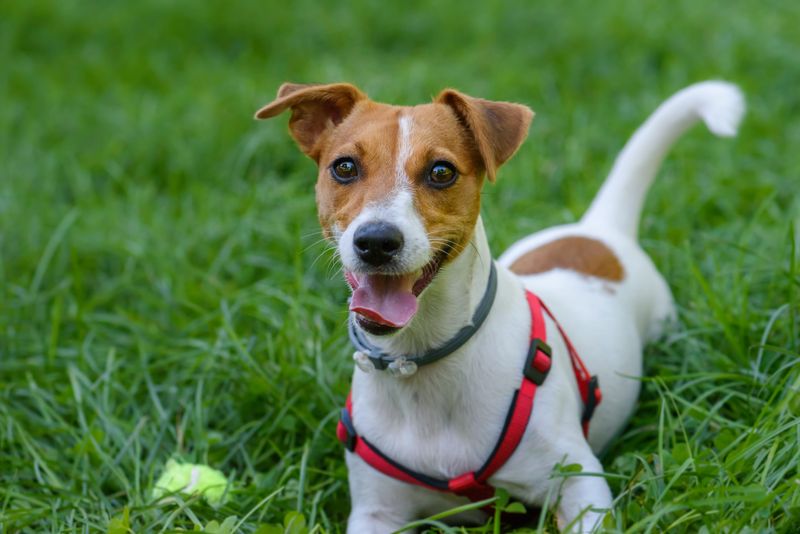
Small but mighty, the Jack Russell Terrier is a bundle of energy and enthusiasm. This breed’s need for activity and mental stimulation is incredible, often leading to challenges for owners who prefer a more laid-back lifestyle.
Jack Russells are known for their intelligence and stubbornness, traits that require consistent training and patience. If deprived of sufficient exercise, they can become quite vocal and mischievous.
For someone dealing with anxiety, the high demands of a Jack Russell might be more than they can handle, turning joy into stress.
Australian Shepherd
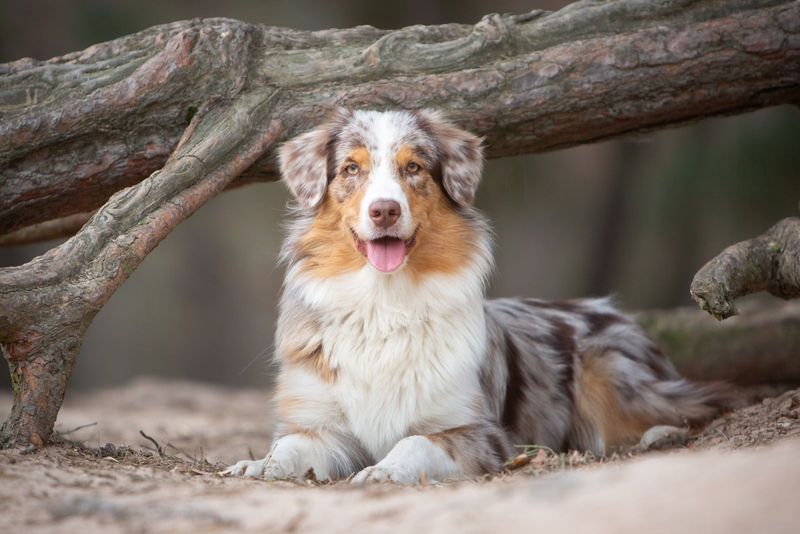
Australian Shepherds are brilliant and versatile working dogs, often seen excelling in agility and obedience competitions. Their need for mental and physical challenges can be overwhelming for some.
These dogs are highly energetic and require a lot of exercise to keep them content. Without this, they might develop anxiety or destructive behaviors themselves, which can be stressful for an already anxious owner.
Their boundless energy and need for attention might not suit someone looking for a calm canine companion.
Weimaraner

Weimaraners are known as the “Grey Ghost” for their sleek, silver-grey coats and graceful presence. However, their beauty comes with a need for constant activity and interaction.
These dogs are affectionate and people-oriented, often developing separation anxiety if left alone for too long. Their high energy and demand for companionship can be taxing on someone already dealing with anxiety.
If you’re seeking a dog that requires less constant attention, a Weimaraner’s needs might add to your stress rather than alleviate it.
Chihuahua
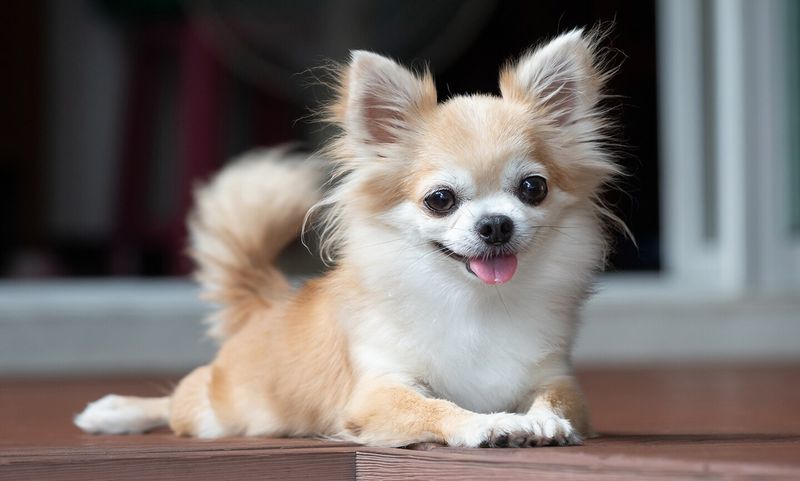
The Chihuahua, despite its small size, is known for its outsized personality. These little dogs often have strong opinions and a tendency to bark excessively, especially when anxious or scared.
Chihuahuas form close bonds with their owners, which can lead to over-dependence and possessiveness. This trait might not be ideal for someone dealing with anxiety, as it requires patience to manage their behavior.
For those seeking a low-maintenance companion, the Chihuahua’s vocal and demanding nature might be more of a challenge than a comfort.
Airedale Terrier
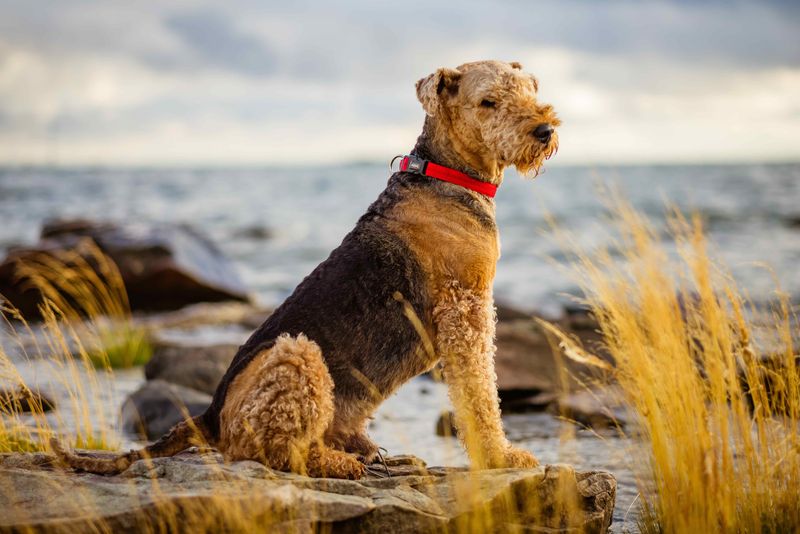
As the largest of the terrier breeds, the Airedale Terrier is both courageous and intelligent. Known for their confidence and independence, these dogs require consistent training and socialization.
Airedales are energetic and need regular mental and physical stimulation, which can be overwhelming for some owners. Their intelligent and sometimes stubborn nature adds to the challenge.
For individuals dealing with anxiety, the Airedale’s demanding needs might prove to be more of a burden than a blessing, requiring more time and energy than one can spare.
Belgian Malinois

Often seen in military and police roles, the Belgian Malinois is renowned for its work ethic and intelligence. This breed requires an experienced owner who can provide firm leadership and extensive training.
Their high drive and need for activity make them a poor fit for someone seeking a relaxed companion. Without proper stimulation, a Malinois can become anxious or destructive, adding stress to an anxious owner.
The responsibility of meeting a Belgian Malinois’ needs might prove too daunting for those not prepared for such an active lifestyle.
Akita
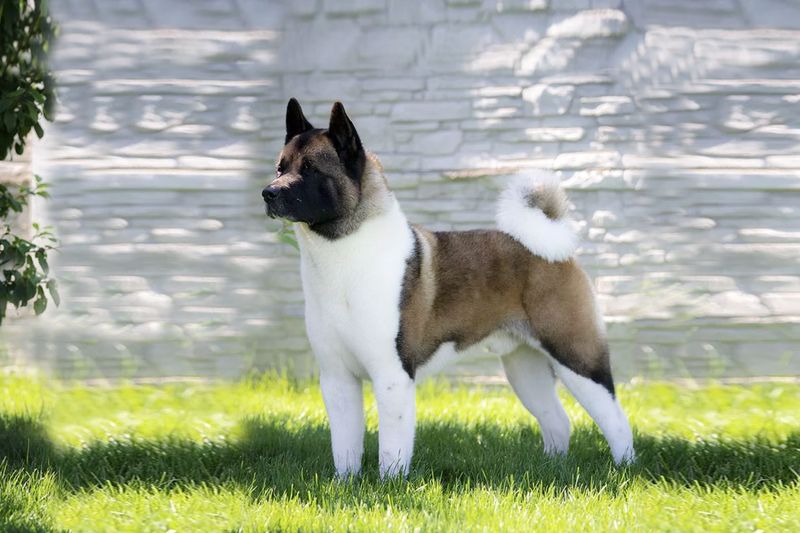
Akitas are known for their dignified and reserved nature, often forming strong bonds with their families. However, their independence and aloofness can be challenging.
These dogs require early socialization and consistent training to manage their protective instincts. Their aloofness can sometimes be mistaken for stubbornness, requiring patience and understanding.
For someone dealing with anxiety, an Akita’s independent nature might lead to misunderstandings and stress, making them less ideal for those seeking constant companionship and reassurance.
Chow Chow
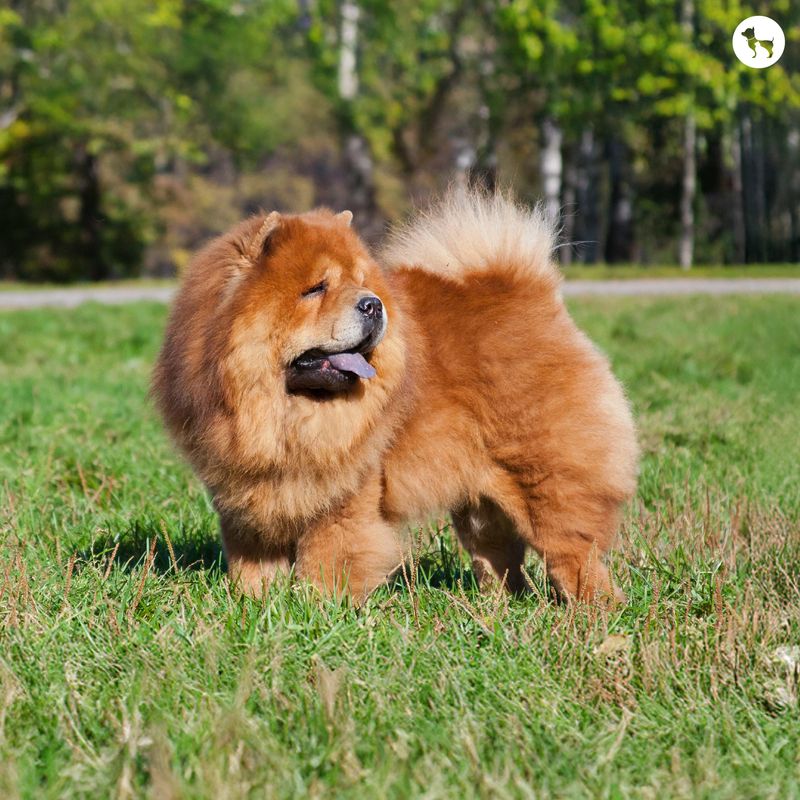
With their distinctive lion-like appearance and aloof personality, Chow Chows are unique companions. They are known for being loyal yet independent, often preferring their own company.
Managing a Chow Chow requires understanding their need for space and their reserved nature. Their independence might not suit someone seeking a dog that’s always eager to please.
For those with anxiety, the Chow Chow’s cool demeanor might not provide the emotional support or comfort they need, possibly leading to feelings of isolation rather than connection.
Cocker Spaniel
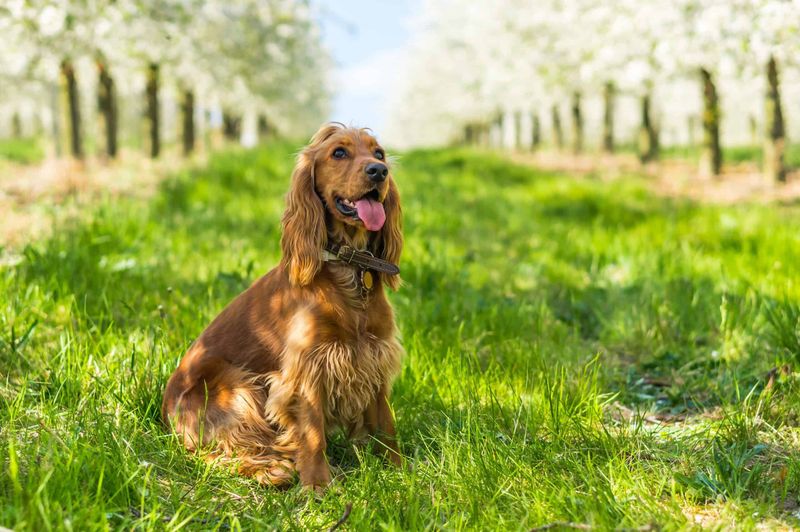
Cocker Spaniels are known for their affectionate nature and beautiful, flowing coats. However, they can also be prone to anxiety themselves, especially if left alone for long periods.
These dogs thrive on companionship and might become destructive if they feel neglected. Their need for grooming and attention can be overwhelming for someone already dealing with anxiety.
While their looks might be appealing, the constant care and attention they require might add stress rather than relieve it for an anxious owner.
German Shepherd

Renowned for their intelligence and versatility, German Shepherds are often used in police and military roles. Their high energy and need for mental stimulation can be overwhelming for an anxious owner, as they thrive in environments where they can work and learn.
This breed’s protective instincts mean they can be anxious and overprotective without proper training. Their need for a strong leadership presence can be taxing, especially for someone seeking a more calming influence in a pet.
While they are undoubtedly loyal and capable companions, the German Shepherd’s requirements for engagement and exercise make them a demanding choice. They’re better suited to owners who can dedicate time to training and activity, rather than those looking for a relaxed companion.
Doberman Pinscher
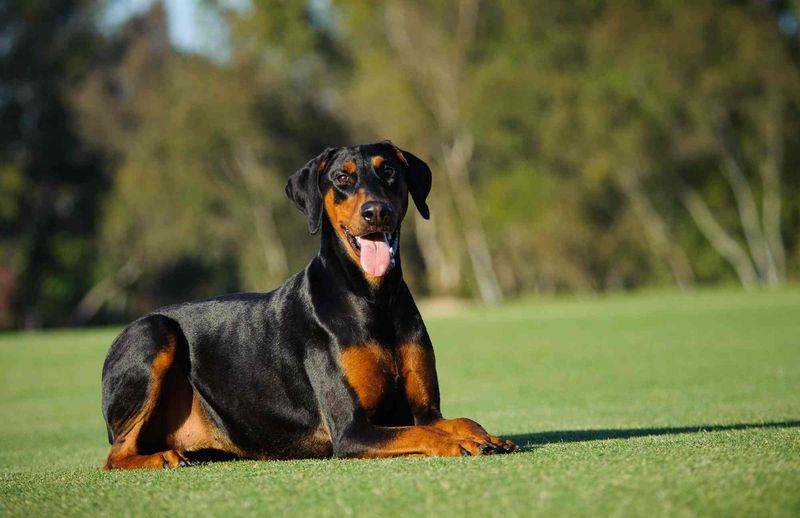
Dobermans are known for their intelligence and loyalty, often serving as excellent guard dogs. However, their protective nature requires careful training and socialization.
This breed’s energy and need for structured leadership can overwhelm someone dealing with anxiety. Without proper guidance, they might become overly protective or anxious themselves.
For those seeking a more passive companion, the Doberman’s dominant personality and need for direction might add more stress than comfort.
Schipperke
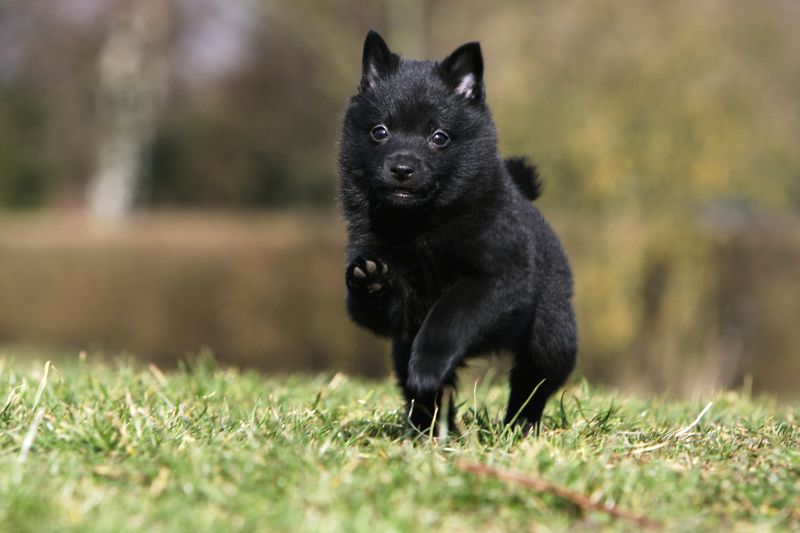
Known as the “little captain,” the Schipperke is a small dog with a big personality. These lively and curious dogs require constant mental stimulation and activity.
Their independent nature and tendency to bark can be challenging to manage, especially for someone dealing with anxiety. Schipperkes have a mind of their own and can be quite stubborn.
Managing their spirited personality might be more than you can handle if you’re looking for a low-maintenance companion to ease anxiety.
Rottweiler
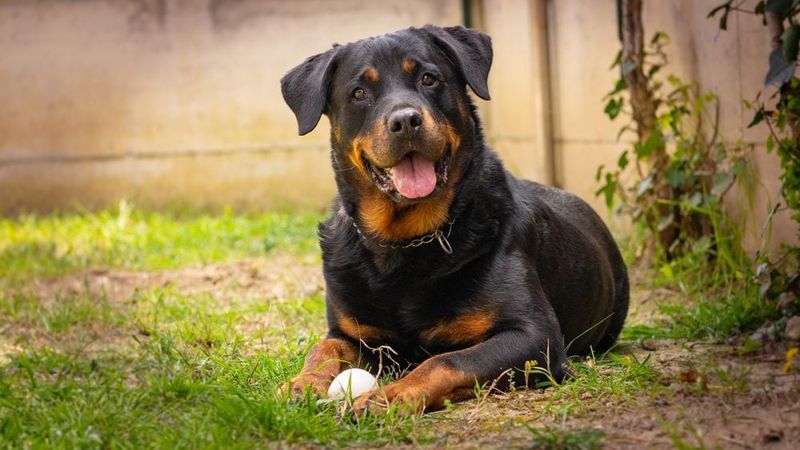
The Rottweiler’s imposing presence and protective instincts make it a formidable companion. While they are loyal and loving to their families, they require careful socialization and training to manage their strong guarding instincts.
This breed’s size and strength can be intimidating, and their need for consistent leadership can be taxing for someone suffering from anxiety. Without the right guidance, Rottweilers can become overly protective, leading to potential stress for an anxious owner.
Despite their affectionate nature with their loved ones, a Rottweiler’s requirement for firm control and leadership can be overwhelming. For those seeking a more relaxed and less demanding pet, the Rottweiler’s bold demeanor may not be the ideal fit.
Great Dane
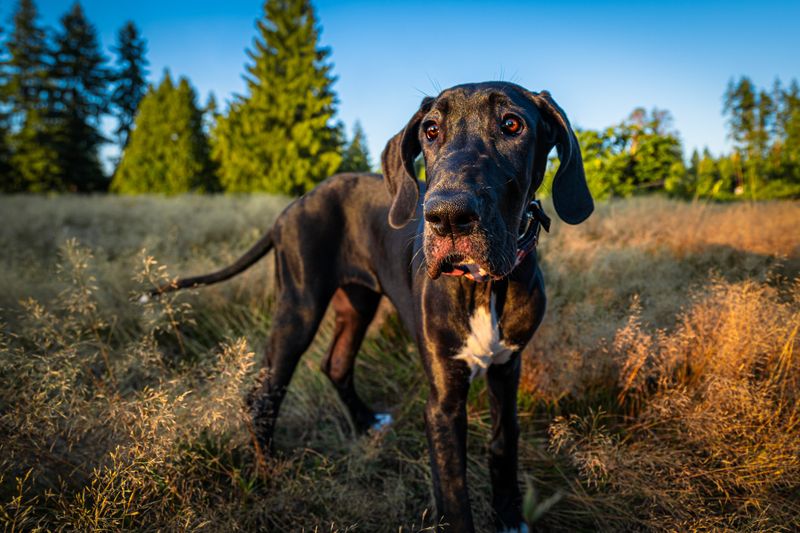
The Great Dane, often referred to as the “gentle giant,” is known for its impressive size and calm nature. However, their size can be daunting for someone with anxiety.
Great Danes require plenty of space and can be quite sensitive, picking up on their owner’s emotions. Their need for room and understanding might be challenging to provide.
If you’re not ready for a dog that takes up a significant amount of space and requires emotional reassurance, a Great Dane might add to your anxiety rather than ease it.

